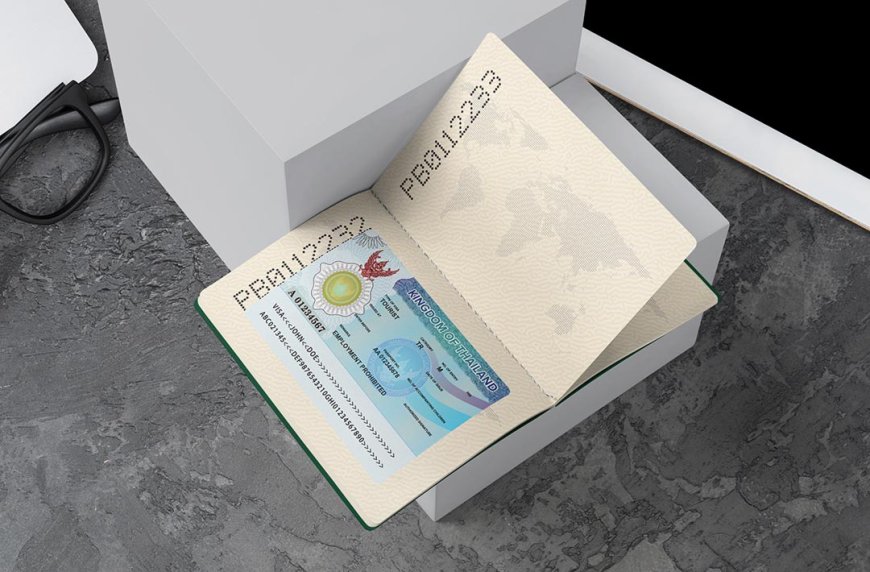Applying for a Long-Term Resident (LTR) Visa in Thailand is an excellent option for those looking to stay in the country for an extended period, whether for retirement, work, or investment. The LTR Visa offers a range of benefits, including long-term residency, and is designed to attract high-net-worth individuals, retirees, and professionals. Here’s a step-by-step guide on how to apply for a Thailand LTR Visa.
1. Understand the Thailand LTR Visa Categories
The Thailand LTR Visa is divided into several categories, each catering to different types of long-term residents:
Wealthy Global Citizens: High-net-worth individuals with substantial financial assets.
Wealthy Pensioners: Retirees with a regular pension income.
Work-From-Thailand Professionals: Remote workers or digital nomads.
Highly-Skilled Professionals: Experts in targeted industries.
Dependents: Spouses and children of LTR Visa holders.
Identify which category you fall into to determine the specific requirements and benefits that apply to you.
2. Meet the Eligibility Criteria
Each LTR Visa category has specific eligibility criteria that applicants must meet:
Wealthy Global Citizens: Must have assets worth at least USD 1 million and an annual income of at least USD 80,000.
Wealthy Pensioners: Must have a stable pension of at least USD 40,000 annually and invest in Thai government bonds or property.
Work-From-Thailand Professionals: Must have an income of at least USD 80,000 annually and work for a well-established company.
Highly-Skilled Professionals: Must have a job offer in targeted industries and meet income and experience requirements.
Ensure you meet the financial, professional, and investment criteria for your specific category.
3. Prepare the Required Documents
Gather all necessary documents for your LTR Visa application. Commonly required documents include:
A completed LTR Visa application form.
A valid passport with at least six months of validity.
A recent passport-sized photograph.
Proof of financial stability (bank statements, income proof, or investment documents).
Health insurance coverage that meets the minimum requirements set by Thai authorities.
Police clearance certificate.
Employment contract or proof of professional qualifications (for work-related categories).
Depending on your category, additional documents may be required, such as proof of pension for retirees or business credentials for professionals.
4. Submit Your Application Online
Thailand has streamlined the LTR Visa application process, allowing applicants to submit their documents online through the official Thai government portal. Create an account, fill out the application form, and upload the required documents.
5. Pay the Visa Application Fee
The application fee for the Thailand LTR Visa varies depending on the category and the processing time. Typically, the fee is around THB 50,000 per person. Payment can be made online during the application process.
6. Wait for Application Approval
After submitting your application and payment, the processing time can take several weeks. The Thai authorities will review your documents and determine your eligibility for the LTR Visa. If approved, you will receive a notification to proceed to the next step.
7. Visit a Thai Embassy or Consulate
Once your application is approved, you may need to visit a Thai embassy or consulate to finalize your visa. This step may involve submitting your passport for the visa sticker and providing biometric information. The embassy or consulate will issue the LTR Visa, allowing you to enter Thailand as a long-term resident.
8. Register with Thai Immigration Upon Arrival
Upon arriving in Thailand, you must register with the local immigration office. This process includes providing your visa, passport, and proof of residence. Depending on your visa category, you may also need to report your address to the immigration office every 90 days.
Conclusion
Applying for a Thailand LTR Visa is a strategic move for those seeking long-term residency in one of Southeast Asia’s most vibrant countries. By understanding the different categories, meeting the eligibility requirements, and following the application process, you can secure your LTR Visa and enjoy the benefits of living, working, or retiring in Thailand. Whether you’re a high-net-worth individual, retiree, or professional, the Thailand LTR Visa offers a pathway to long-term residency with added advantages for you and your family.


